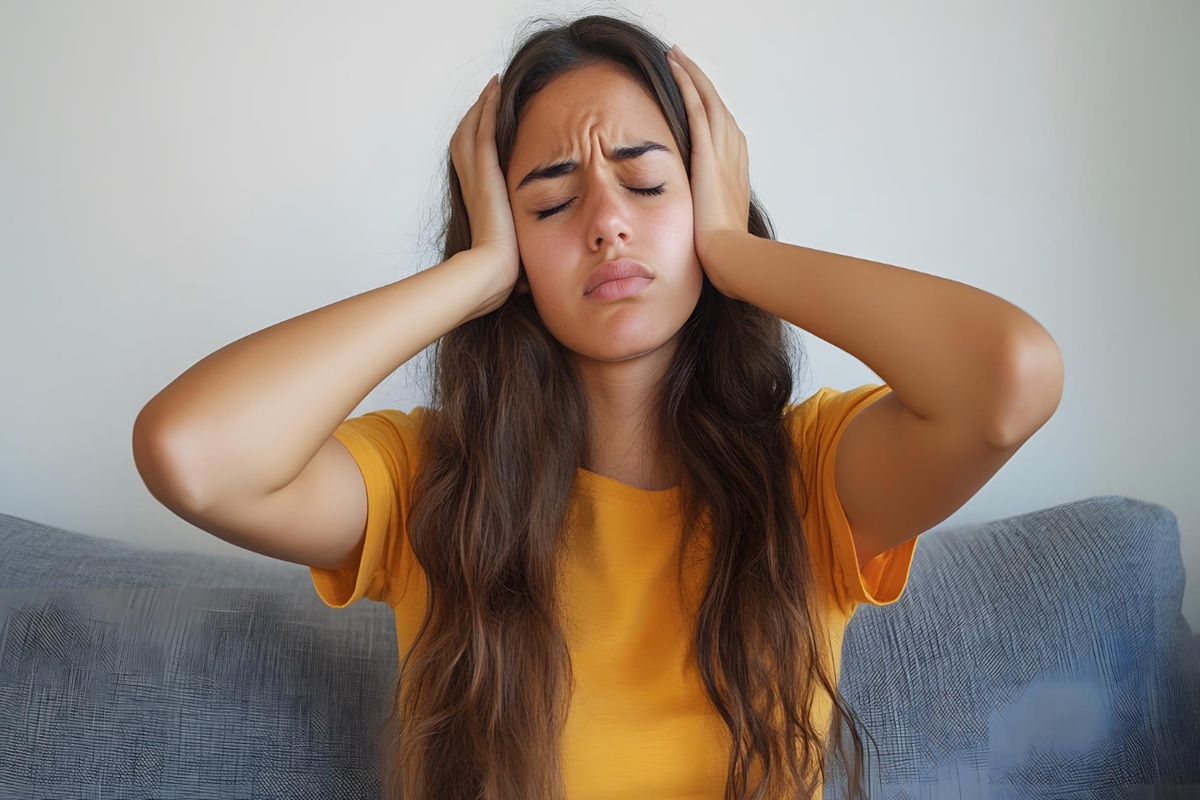Anxiety is a prevalent mental health concern that affects millions of people worldwide. Many individuals are turning to alternative approaches, such as functional medicine for anxiety, to address anxiety more holistically. Functional medicine and anxiety are closely linked because functional medicine focuses on understanding the root causes of health issues, including mental health conditions like anxiety, rather than merely treating symptoms. This approach emphasizes treating the whole person and recognizing the complex interactions between genetics, environment, lifestyle, and biology. Addressing anxiety through a functional medicine lens means considering not just the mind but also the body’s role in anxiety. Functional medicine aims to identify and correct underlying imbalances, such as root cause analysis of anxiety-related triggers, leading to better mental health and overall well-being.
What is Anxiety?
Anxiety is a natural stress response and can be a normal part of life. However, when anxiety becomes chronic, excessive, or overwhelming, it can lead to significant distress and interfere with daily activities. Generalized Anxiety Disorder (GAD) affects 6.8 million adults, or 3.1% of the U.S. population, yet only 43.2% are receiving treatment. By focusing on the hypothalamic–pituitary–adrenal axis (HPA axis), functional medicine aims to regulate the stress response system contributing to anxiety. Anxiety presents in various forms, such as panic disorders, social anxiety, and specific phobias, all of which can severely impact a person’s quality of life.
Common Root Causes of Anxiety
A key principle of functional medicine anxiety treatment is identifying and addressing the root causes of health issues, including anxiety. Several factors can contribute to anxiety, including genetics, lifestyle choices, and biological imbalances.
- Genetics: Ongoing research supports the hypothesis that a genetic predisposition may be shared among mood and anxiety disorders. Both genetic and environmental influences contribute to how anxiety manifests in an individual. While you can’t change your genetics, understanding your family history can offer insight into your mental health and help guide personalized treatment strategies.
- Blood Sugar Imbalances: Blood sugar levels can significantly affect mood and anxiety, so functional medicine labs often test for blood sugar regulation.
- Low blood sugar: Low blood sugar (hypoglycemia) can trigger anxiety symptoms such as dizziness, shakiness, and irritability. High blood sugar, often associated with poor dietary habits, can also increase anxiety by affecting hormone balance and inflammation in the body.
- Hormone Imbalances: Hormones like cortisol, estrogen, and progesterone are critical in mood regulation. Imbalances in these hormones, especially during times like menopause or pregnancy, can contribute to increased anxiety. Functional medicine may explore testing for hormone regulation through the DUTCH test. Thyroid dysfunction, such as hypothyroidism or hyperthyroidism, is another factor that can trigger or exacerbate anxiety symptoms.
- Too Much Caffeine Consumption: Caffeine is a stimulant that can increase anxiety by overstimulating the nervous system. While some people can tolerate caffeine, others may experience heightened anxiety, nervousness, and even panic attacks after consuming caffeinated beverages. Reducing or eliminating caffeine is often recommended for individuals with anxiety.
- Micronutrient Deficiencies: Deficiencies in essential nutrients, such as magnesium, B vitamins (like B6 and B12), and omega-3 fatty acids like EPA and DHA, have been linked to anxiety and depression. Current evidence suggests that healthy eating patterns that meet food-based dietary recommendations and nutrient requirements may assist in the prevention and treatment of depression and anxiety. These nutrients support brain function, neurotransmitter production, and the body’s stress response. Ensuring proper nutrition can be a critical component of managing anxiety naturally.
- Lifestyle Factors: Chronic stress, poor sleep, lack of physical activity, and unhealthy eating habits all contribute to anxiety, and functional medicine practitioners often recommend lifestyle modifications to address these concerns. A sedentary lifestyle and prolonged exposure to stress can cause imbalances in neurotransmitters and hormones, leading to increased anxiety symptoms. Adopting a healthy lifestyle that includes regular exercise, adequate sleep, and stress management reduces anxiety.
- High Cortisol: Cortisol, the body’s stress hormone, is essential in managing acute stress. However, prolonged stress can lead to chronically elevated cortisol levels, affecting the HPA axis imbalance, which can trigger or worsen anxiety. Functional medicine practitioners often work to balance cortisol levels through lifestyle changes, dietary modifications, and targeted supplements.
- Gut Health Issues: The gut-brain connection plays a vital role in mental health, and gut imbalances, such as leaky gut or dysbiosis, can contribute to anxiety. The gut produces important neurotransmitters like serotonin, a core component of the gut-brain axis that regulates mood. Functional medicine often emphasizes gut health as a foundation for treating anxiety, using gut health testing and diet adjustments to restore balance.
- Health Conditions: Certain health conditions, such as chronic pain, autoimmune disorders, or cardiovascular disease, can exacerbate anxiety. Treating the underlying health conditions is essential for managing anxiety from a functional medicine perspective.
- Neurotransmitters: Neurotransmitters like serotonin, dopamine, and GABA play a central role in regulating mood. Imbalances in these chemicals can lead to anxiety and other mood disorders. Functional medicine practitioners often use neurotransmitter testing to identify and correct these imbalances with dietary changes and supplements.
Signs and Symptoms of Anxiety

Anxiety can manifest in a variety of physical and emotional symptoms. It often presents itself through signs that can affect individuals in numerous ways. Common indicators include:
- Racing Heart: A fast heartbeat, often called heart palpitations, is a common symptom of anxiety. It occurs when the body enters a “fight or flight” mode in response to perceived stress.
- Restlessness: An inability to relax or constant feeling of unease is a hallmark symptom of anxiety. This can make it difficult to focus or complete daily tasks.
- Irritability: Anxiety often causes individuals to feel unusually agitated or on edge, reacting strongly to scenarios that would normally not disturb them. This heightened sensitivity can make everyday situations challenging and stressful.
- Difficulty Concentrating: Individuals experiencing anxiety often find it challenging to maintain concentration, as they may feel overwhelmed by racing thoughts, which can impede their ability to finish tasks.
- Difficulty Sleeping: Insomnia or disrupted sleep is commonly associated with anxiety. Racing thoughts or worrying excessively can make it hard to fall asleep or stay asleep.
- Difficulty Breathing: Anxiety can lead to shortness of breath or hyperventilation, intensifying feelings of panic or a sense of impending doom.
- Excessive Feelings of Fear: Anxiety can lead to feelings of overwhelming fear or worry, often seeming much larger than the situation warrants. This disproportionate reaction can significantly impact a person’s daily life and well-being.
- Muscle Tension: Chronic anxiety often manifests physically, with tightness in the neck and shoulder muscles, which can be influenced by dysbiosis and the enteric nervous system. This tension can significantly impact daily comfort and mobility.
- Chest Pain: Individuals with anxiety may often experience chest tightness or pain, which can be distressing and mimic symptoms of heart-related problems.
- Headache: Chronic stress and anxiety are often culprits behind tension headaches or migraines. These conditions can trigger or worsen headaches in individuals.
- Stomachache: Anxiety can lead to digestive problems such as stomach pain, nausea, and an upset stomach. These symptoms are a common physical response to stress.
- Sweating: Excessive sweating, particularly in stressful situations, is often a sign of anxiety. It’s a common physical response that many people experiencing anxiety may notice.
- Trembling: Shaking or trembling can be symptoms experienced when someone is going through high levels of anxiety, especially during instances like panic attacks.
How Functional Medicine Diagnoses the Root Causes of Anxiety
Functional Medicine Tulsa takes a personalized and comprehensive approach to diagnosing the root causes of anxiety, using functional lab testing, such as neuro adrenal profiles, to identify imbalances and triggers.
Comprehensive Gut Health Testing
Gut health is often at the center of functional medicine treatment plans for anxiety, with comprehensive gut health testing identifying gut dysbiosis and issues with the gut microbiome.
Nutrient Testing
Testing for deficiencies in essential vitamins and minerals helps tailor treatment plans to correct imbalances, such as zinc or vitamin D deficiencies, which can alleviate anxiety symptoms.
Hormone & Neurotransmitter Testing
Functional medicine practitioners use hormone and neurotransmitter testing, including organic acids and the neurotransmitter production pathways, to assess imbalances in cortisol, thyroid hormones, and neurotransmitters like serotonin and dopamine.
Comprehensive Blood Workup
Blood tests are often used to check for underlying health conditions or metabolic imbalances that could contribute to anxiety.
Common Functional Medicine Approaches to Anxiety
Functional medicine approaches to anxiety often include nutritional support and nutraceutical supplementation with adaptogenic herbs, lifestyle modifications, such as diet changes and increased physical activity, and mindfulness practices. They may also explore potential underlying causes, like hormonal imbalances or nutrient deficiencies, to tailor a personalized treatment plan.
Nutrition and Diet Modifications
A diet rich in whole foods, healthy fats, and balanced macronutrients is critical for reducing anxiety. Functional medicine practitioners often recommend elimination diets and anti-inflammatory diets, eliminating processed foods that can exacerbate anxiety by causing inflammation.
Herbs and Supplements
Natural supplements like magnesium, adaptogens, omega-3 fatty acids, and CBD therapy can help support the body’s stress response and balance neurotransmitters.
Stress Management Techniques

Techniques like meditation, deep breathing exercises, mindfulness-based stress reduction, and aerobic exercises are key to managing stress and reducing anxiety. Functional medicine emphasizes personalized stress-reduction strategies.
Exercises
Regular physical activity is known to reduce anxiety. Exercise increases endorphins and improves mood, making it a core part of any anxiety management plan.
How to Complement Conventional Anxiety Treatments with Functional Medicine
Functional medicine approaches can work alongside conventional treatments like medication or cognitive behavioral therapy (CBT). This integrative approach allows for a more comprehensive and personalized treatment plan.
Choosing the Right Functional Medicine Doctor for Anxiety
When choosing a functional medicine doctor, it’s important to find someone who specializes in mental health and has experience with anxiety treatment. Working with a practitioner offering a personalized, holistic approach is key to long-term success.
Conclusion
Anxiety is a complex condition that requires a multifaceted treatment approach. The functional medicine approach to anxiety offers a comprehensive and holistic solution by addressing the root causes of anxiety, from gut health and nutrient deficiencies to hormone imbalances and lifestyle factors. By focusing on these underlying causes, functional medicine practitioners help individuals achieve better mental health and lasting relief from anxiety.
FAQs
Can functional medicine cure anxiety?
Functional medicine aims to address the root causes of anxiety, but it does not claim to “cure” anxiety. Instead, it offers a comprehensive approach that can significantly reduce symptoms and improve quality of life.
What does functional medicine do for anxiety?
Functional medicine identifies and addresses the underlying causes of anxiety, such as nutrient deficiencies, hormone imbalances, or gut health issues, offering a more personalized treatment plan.
What is a holistic approach to anxiety?
A holistic approach to anxiety involves treating the whole person, including mind, body, and lifestyle, to address the root causes of stress rather than just masking symptoms with medication.

